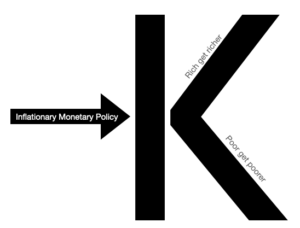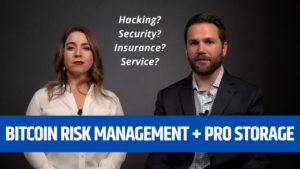In a world where we see stories unfold such as:
- Enron
- WorldCom
- Tyco
- Subprime mortgage crisis
- Mutual fund mortgage overexposure and misreporting
- Fannie Mae & Freddie Mac accounting scandals
- Insolvency of Investment Bank Bear Stearns
…most Americans are running low on trust when it comes to financial service companies. Who can you trust?
This is an especially important question in light of my recent post about misinformation in the self directed IRA community. My answer: yourself. That is what self directed investing is all about. You have control of your assets.
With the checkbook control provided by an IRA LLC, there is no potential for fraud unless your IRA rollover is handled by someone other than a bank or trust company (aka custodian). With a Solo 401(k) you don’t even have to transfer your assets through a custodian in the first place.
Q: What should I be concerned about?
A: Prohibited transactions and tax compliance, although it is simple to address both concerns. You can search Google for “self directed IRA prohibited transactions” and “IRA UBIT tax” to learn about the basics of both topics. If a service provider claims something that doesn’t jive with your basic understanding of these core topics, that should throw up a red flag. Claims such as “your IRA can loan money to you or your company” and “your IRA can own a company that does business with you or your company” should clearly create some concerns for compliance with self dealing rules.
Good questions to ask a service provider include:
- Are your plan documents IRS Prototypes? If yes, this means that their plan documents (for qualified plans such as a 401k) are essentially determined to meet the requirements of being a qualified plan as detailed in a blanket IRS determination letter that can be provided to you. If their answer is “no” and their plans are also not “mass submitter” documents, then there may be reason for concern.
- Are your entity documents attorney drafted and supported? Entity documents, such as the Operating Agreement of a Special Purpose LLC, need to be regularly updated by an attorney to reflect the evolving viewpoint of the IRS and DOL. Many IRA LLC facilitators are simply reusing (without authorization) documents they purchased, but are unable to afford the legal support required to keep their services as compliant as possible. This type of intellectual property infringement can either decrease the price of the service or increase the profit margin (depending on how the unscrupulous service provider looks at it), but neither are a good deal for the individual investor who would pay the consequences in the case of legal or tax noncompliance.
Finding a company that answers the above questions favorably means that your checkbook control structure should be legitimate and compliant. This direct control eliminates potential fraud or mishandling of funds because you aren’t going to defraud yourself. This scenario may actually be able to improve your overall investment strategy. For example, my company does not accept or handle deposits or assets of any kind. For this reason, we don’t have to pass banking regulatory costs on to our customers. If it were reasonable to say that chartering a bank or trust company costs $2 million, we are excited to say that our first $2 million of reinvestable revenue can be directed towards the development of tools to help the investor rather than to protect the investor from us mishandling their funds. If maintaining a bank or trust company costs $500,000 per year in regulatory fees, that’s $500,000 of further reinvestment into tools & new services… or savings for us to pass on to our customers through lower fees.
Because the risk of prohibited transactions and fiduciaries issues are the same with or without checkbook control, the peace of mind that checkbook control offers is certainly worth a premium. The fact that it offers that peace of mind and savings (instead of a premium) is what I believe will turn this investment strategy into something that is feasible for average people.
Taking direct control of your wealth is an exciting alternative to riding the economic roller coaster, and it removes the need for you to become comfortable placing your assets into the hands of yet another smiling guy in a suit. Trust yourself.


